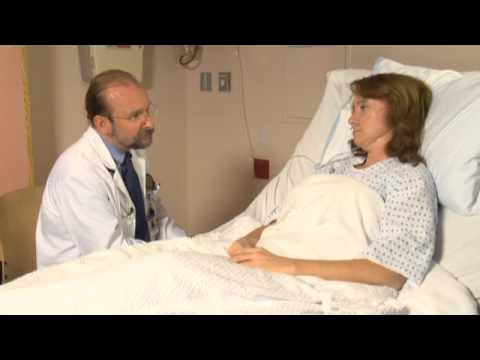Caso N°2 - Modulo II
Summary
TLDRIn this video, a healthcare professional demonstrates effective patient-centered communication, highlighting key skills like assertiveness, empathy, active listening, and the use of the Question-Account-Question model. The doctor addresses a patient's urinary infection, providing clear instructions for diagnosis and treatment, including a urine culture and antibiotics. The doctor emphasizes the importance of completing the prescribed course and avoiding alcohol and special hygiene measures. The video also stresses the importance of applying communication principles in practical medical cases, reinforcing the clarity and understanding needed for patient care.
Takeaways
- 😀 The patient is experiencing discomfort and burning sensation while urinating, which started three days ago and has worsened.
- 😀 The doctor listens actively to the patient's symptoms, confirming details like the duration and additional symptoms, such as a strong odor.
- 😀 The doctor diagnoses the patient with a urinary tract infection (UTI), explaining that it is common in women of the patient's age group.
- 😀 The doctor reassures the patient by explaining that UTIs are treatable, emphasizing the effectiveness and quickness of the treatment.
- 😀 The treatment involves a urine culture test followed by antibiotics (nitrofur) to be taken every 6 hours for 7 days.
- 😀 The doctor emphasizes the importance of completing the full course of antibiotics, even if symptoms improve before the treatment is finished.
- 😀 The patient is instructed to avoid alcohol, sexual activity, and special washing practices while undergoing treatment.
- 😀 The doctor uses clear, step-by-step instructions, ensuring that the patient understands the treatment process.
- 😀 The doctor checks for any further questions from the patient, confirming that they fully understand the treatment regimen and its restrictions.
- 😀 The doctor provides a prescription and a clear plan for follow-up based on the urine culture results, reinforcing the importance of adherence to the treatment.
Q & A
What is the main topic discussed in the video?
-The video focuses on effective communication techniques used by a doctor during a consultation with a patient. It highlights the use of assertiveness, empathy, active listening, the Grice Maxims, and the Question-Account-Question model.
How does the doctor demonstrate assertiveness in the conversation?
-The doctor is clear, direct, and confident when providing medical advice and explaining the treatment plan. He uses unambiguous language to ensure the patient understands what needs to be done.
What role does empathy play in the doctor's communication with the patient?
-Empathy helps the doctor connect with the patient by acknowledging the discomfort and reassuring her that urinary infections are common and treatable. This approach helps reduce the patient's anxiety.
Can you explain an example of active listening from the doctor?
-The doctor asks open-ended questions such as, 'Has felt or noticed anything else since then?' This shows that the doctor is paying attention to the patient's symptoms and giving her space to share important details.
What are the Grice Maxims, and how are they applied in this conversation?
-The Grice Maxims are principles that guide effective communication. In the video, the doctor follows the Maxim of Quantity (providing sufficient information), Maxim of Quality (giving accurate information), Maxim of Relation (ensuring all information is relevant), and Maxim of Manner (communicating clearly).
How does the doctor apply the Question-Account-Question model during the consultation?
-The doctor starts by asking the patient about her symptoms (Question), provides an explanation of the diagnosis and treatment (Account), and then follows up with, 'Do you have any other questions?' (Question), allowing the patient to clarify any doubts.
What specific treatment does the doctor prescribe to the patient?
-The doctor prescribes a urine culture followed by a 7-day course of nitrofurantoin, an antibiotic to be taken every 6 hours during meals. The patient is also advised to avoid alcohol and sexual activity during the treatment.
Why does the doctor emphasize the importance of completing the full antibiotic course?
-The doctor stresses that the patient must complete the full 7-day antibiotic regimen to ensure the infection is fully treated, even if the symptoms improve before the course is finished.
What instructions does the doctor give regarding the patient's diet during treatment?
-The doctor advises the patient to maintain a normal diet but to avoid alcohol and sexual activity while on the antibiotic treatment.
How does the doctor reassure the patient about the treatment process?
-The doctor reassures the patient by explaining that urinary infections are common, especially for women of her age, and that the prescribed treatment is effective and quick. This reassures the patient that her condition is manageable.
Outlines

Dieser Bereich ist nur für Premium-Benutzer verfügbar. Bitte führen Sie ein Upgrade durch, um auf diesen Abschnitt zuzugreifen.
Upgrade durchführenMindmap

Dieser Bereich ist nur für Premium-Benutzer verfügbar. Bitte führen Sie ein Upgrade durch, um auf diesen Abschnitt zuzugreifen.
Upgrade durchführenKeywords

Dieser Bereich ist nur für Premium-Benutzer verfügbar. Bitte führen Sie ein Upgrade durch, um auf diesen Abschnitt zuzugreifen.
Upgrade durchführenHighlights

Dieser Bereich ist nur für Premium-Benutzer verfügbar. Bitte führen Sie ein Upgrade durch, um auf diesen Abschnitt zuzugreifen.
Upgrade durchführenTranscripts

Dieser Bereich ist nur für Premium-Benutzer verfügbar. Bitte führen Sie ein Upgrade durch, um auf diesen Abschnitt zuzugreifen.
Upgrade durchführenWeitere ähnliche Videos ansehen

"Building Efficiency and Effectiveness through Patient-Centered Interviewing" by Auguste H. Fortin

Communication in Multidisciplinary Healthcare Teams

IPE Core Competency Domain 3: Interprofessional Communication

Communication Skills - The 6 Keys Of Powerful Communication

Role Playing Therapeutic Communication

ETIKA KOMUNIKASI DAN BERPENAMPILAN BAGI PERAWAT DALAM MEMBERIKAN ASUHAN KEPERAWATAN
5.0 / 5 (0 votes)
